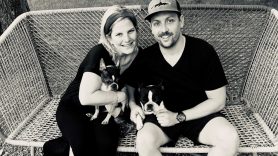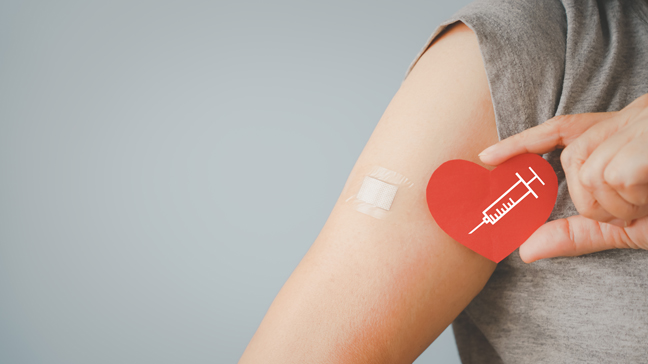- Diseases
- Acoustic Neuroma (14)
- Adrenal Gland Tumor (24)
- Anal Cancer (66)
- Anemia (2)
- Appendix Cancer (16)
- Bile Duct Cancer (28)
- Bladder Cancer (68)
- Brain Metastases (28)
- Brain Tumor (228)
- Breast Cancer (716)
- Breast Implant-Associated Anaplastic Large Cell Lymphoma (2)
- Cancer of Unknown Primary (4)
- Carcinoid Tumor (8)
- Cervical Cancer (154)
- Colon Cancer (164)
- Colorectal Cancer (110)
- Endocrine Tumor (4)
- Esophageal Cancer (42)
- Eye Cancer (36)
- Fallopian Tube Cancer (6)
- Germ Cell Tumor (4)
- Gestational Trophoblastic Disease (2)
- Head and Neck Cancer (6)
- Kidney Cancer (124)
- Leukemia (344)
- Liver Cancer (50)
- Lung Cancer (288)
- Lymphoma (284)
- Mesothelioma (14)
- Metastasis (30)
- Multiple Myeloma (98)
- Myelodysplastic Syndrome (60)
- Myeloproliferative Neoplasm (4)
- Neuroendocrine Tumors (16)
- Oral Cancer (100)
- Ovarian Cancer (170)
- Pancreatic Cancer (166)
- Parathyroid Disease (2)
- Penile Cancer (14)
- Pituitary Tumor (6)
- Prostate Cancer (144)
- Rectal Cancer (58)
- Renal Medullary Carcinoma (6)
- Salivary Gland Cancer (14)
- Sarcoma (236)
- Skin Cancer (294)
- Skull Base Tumors (56)
- Spinal Tumor (12)
- Stomach Cancer (60)
- Testicular Cancer (28)
- Throat Cancer (90)
- Thymoma (6)
- Thyroid Cancer (98)
- Tonsil Cancer (30)
- Uterine Cancer (78)
- Vaginal Cancer (14)
- Vulvar Cancer (18)
- Cancer Topic
- Adolescent and Young Adult Cancer Issues (20)
- Advance Care Planning (10)
- Biostatistics (2)
- Blood Donation (18)
- Bone Health (8)
- COVID-19 (362)
- Cancer Recurrence (120)
- Childhood Cancer Issues (120)
- Clinical Trials (624)
- Complementary Integrative Medicine (24)
- Cytogenetics (2)
- DNA Methylation (4)
- Diagnosis (230)
- Epigenetics (6)
- Fertility (62)
- Follow-up Guidelines (2)
- Health Disparities (14)
- Hereditary Cancer Syndromes (122)
- Immunology (18)
- Li-Fraumeni Syndrome (8)
- Mental Health (118)
- Molecular Diagnostics (8)
- Pain Management (62)
- Palliative Care (8)
- Pathology (10)
- Physical Therapy (18)
- Pregnancy (18)
- Prevention (892)
- Research (390)
- Second Opinion (74)
- Sexuality (16)
- Side Effects (602)
- Sleep Disorders (10)
- Stem Cell Transplantation Cellular Therapy (216)
- Support (404)
- Survivorship (322)
- Symptoms (184)
- Treatment (1770)
Li-Fraumeni syndrome led me to my life’s work
BY Lainie Jones
4 minute read | Published January 07, 2020
Medically Reviewed | Last reviewed by an MD Anderson Cancer Center medical professional on January 07, 2020
Genetic disorders can be really scary, but learning that I have one probably saved my life. It also led me to my current career. As a fundraiser for a children’s cancer hospital, my work supports research on Li-Fraumeni syndrome, a rare genetic condition that I actually have.
Originally, I was planning to become a pediatric oncology nurse. But my own cancer diagnosis and Li-Fraumeni syndrome took me down a different path. I dropped out of nursing school two weeks before classes began, because I’d just started treatment for breast cancer. But being in a hospital as a cancer patient ultimately showed me that nursing was not for me.
I’ve still made supporting people with cancer my life’s work — just in a different way than I originally envisioned.
Early detection is critical with Li-Fraumeni syndrome
I discovered that I have Li-Fraumeni syndrome after my fourth cancer diagnosis —thyroid cancer— in April 2010. At the time, I was only 26. Before that, I’d also been treated for adrenal cancer, breast cancer and melanoma. The first diagnosis happened when I was just a toddler. Since then, I’ve had radiation-induced sarcoma, too. But MD Anderson has kept me cancer-free since 2015.
I realize that having five different types of cancer before age 35 sounds crazy. But that’s one of the hallmarks of Li-Fraumeni. This rare genetic mutation puts people at much higher risk of developing multiple cancers over their lifetimes — and those cancers can happen at any age.
That’s why finding out I had Li-Fraumeni was so important: because when you’re much more likely to develop cancer, getting regular screenings and watching for cancer symptoms can help your doctors find cancer earlier, when it’s most treatable.
I’m now extra vigilant in getting my checkups, scheduling additional screenings and watching my body for any new developments. I keep sharing my story with others, too, in the hopes that they might recognize similarities in themselves or their loved ones, and get tested. Because early awareness is critical.
The unexpected blessing of a spontaneous mutation
It turns out that neither my parents nor any of my siblings have Li-Fraumeni. So my condition was not inherited. It developed from what’s known as a spontaneous mutation. That means none of my family members will ever have to go through what I did because of that syndrome, which is a relief.
Still, that didn’t change the way I approached my own treatment. I had my ovaries and uterus removed preventively when I was just 27. And I didn’t save any of my eggs, either, because my family hadn’t been tested yet. I didn’t want to risk any future children having Li-Fraumeni, too. That could’ve happened whether I’d inherited it from my parents, or was the first person in my family to develop it.
My husband and I were only dating back then, but we talked about it, and he was totally onboard. He reminded me that getting well needed to be my primary focus.
Managing anxiety after my Li-Fraumeni diagnosis
Looking back, I think that’s the best decision I ever made. Because I’ve been healthy for going on five years now, and that’s pretty exciting.
The high risk of a recurrence — or a new cancer developing — already brings me back to MD Anderson every three months for checkups. Being monitored that closely helps me manage my anxiety.
Coming full circle to help other cancer patients
It’ll be a little tougher for us to have children, of course, but that’s OK. My husband reminded me that there are plenty of kids out there who need loving homes, and we’re starting to explore the option of surrogacy, too.
Now, I just try to focus on living my best life possible. After I gave up my dreams of becoming a nurse, I thought, “How can I save lives without being a nurse?” And then I used my cancer diagnosis to launch a career helping cancer patients. First, I worked at the American Cancer Society as the manager of one of its lodging facilities. Now, I raise money for childhood cancer research.
Finding my life’s purpose through Li-Fraumeni syndrome
I wouldn’t wish Li-Fraumeni syndrome on anyone. But it’s showed me where I’m supposed to be. It’s helped me live more in the moment, too, and not worry as much about what lies ahead.
I still take several medications daily, including two specifically designed to keep cancer at bay: trastuzumab (Herceptin, a targeted therapy) and lapatinib (Tykerb, a type of oral chemotherapy). I also take a blood thinner, and I’ll take synthroid for the rest of my life, since I had my thyroid removed.
Sometimes, people ask, “Don’t you ever get tired of thinking about cancer? Or just want to get away from it?” My answer is always, “Nope.” Because my happiness comes from helping others. So, I feel like I’m doing God’s work. My purpose is still spreading that love.
Request an appointment at MD Anderson online or by calling 1-866-461-0994.

My happiness comes from helping others.
Lainie Jones
Survivor





